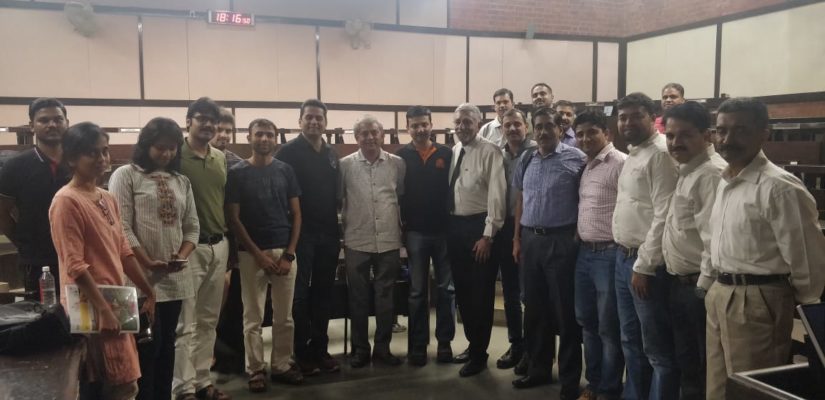
What will the soldier think of politicians and political parties (English Version) Rakshak News 13 Feb 19
http://www.rakshaknews.com/vishesh/military-army-and-political-parties
What will the soldier think of politicians and political parties? (English Version) Rakshak News 13 Feb 19
The press conference by Rahul Gandhi last weekend when he projected an internal note of the Defence Ministry was the latest salvo of the Congress on the Rafale. In recent days, the nation has only been witnessing accusations of corruption in defence deals by every government which has held the seat of power in Delhi. Though, surprisingly no individual has ever been convicted or punished, despite claims of proof. Even investigations have dragged and dragged with no end in sight. Governments have come and gone, but scams have continued unabated.
Whether it was the jeep scam, Bofors, Coffin gate, AgustaWestland or the present Rafale, there is no government which can claim to have been genuinely clean on equipment procurement for the armed forces. There would be many more cases which would have involved middlemen and kickbacks, however not to the level to which some have risen.
While each political party has defended itself claiming that there was no proof, the message going to the soldier from political parties is clear, ‘we cheat you when we procure the equipment you need’.
There are many other sources of government spending but only defence spending is being brought forth by every political party to list scams. Is this because the soldier and national security has lesser value to parties in power, more when it leaves office or is it because this is the easiest route to misusing funds?
To make it worse, political parties have begun dragging the armed forces into their political battle. Rahul directly addressed the armed forces in his latest press conference, claiming their money has been eaten. His comments, which could not have been more insulting were, ‘This 30,000 crores could have been given to you when you die’, leaves many wondering as to what exactly he meant. I wonder if he realizes that the soldier gives his life for the honour of the country and its flag and not for paltry sums of money.
The Prime Minister states in parliament that the Congress does not desire a strong military and hence is questioning defence procurements. He lists out the various scams during their tenure. He also accuses them of playing with national security. Mamta Banerjee asks the armed forces not to obey the directions of the present government.
In contrast, it is the same political parties which accuse service chiefs of making political statements when they speak their mind on political issues which concern the armed forces. When the army chief states that increased presence of illegal migrants in Assam have changed political dynamics of the region, he is accused of making political statements.
When Rawat mentions that the presence of Rohingyas and Bangladeshis in Jammu are a security hazard and must be deported, he is accused of speaking for the ruling party. When he states that over ground workers and stone throwers are future militants and must be treated with force, he is accused of being insensitive to Kashmiris.
When the air force chief comments on the supreme court decision on the Rafale deal and praises the aircraft, he is termed a liar and even asked to stay away from political discussions. It leaves me wondering if politicians and political parties are hypocrites?
Therefore, who is doing the unthinkable, politicizing the armed forces. The service chiefs are not, the politicians are. Each political party accuses the other of politicizing, but all continue doing it.
They are desperate to drag in the soldier, seeking the sympathy of the Indian citizen, who respects soldiers far more than he respects politicians. The Indian knows that the soldier sacrifices, while politicians grab credit, despite gnawing at the limited funds being made available for his equipment.
In all these issues the common soldier is left wondering if there are any honest political parties left to run the country, which he is tasked to protect with his life? He would think whether political parties are only there to loot from the soldier and what is to be procured for him, rather than spend sensibly for national security. Even the common Indian would wonder if other than scams are there any other election issues being projected to the nation.
Hearing accusations of political parties and politicians gnawing at his funds, the soldier, if he had the power to voice his concerns, would shout from the icy heights of Siachen, addressing them, ‘at least be an Indian worth dying for.’ Would it even be heard in the din of scams or would it change the outlook of politicians is unlikely?